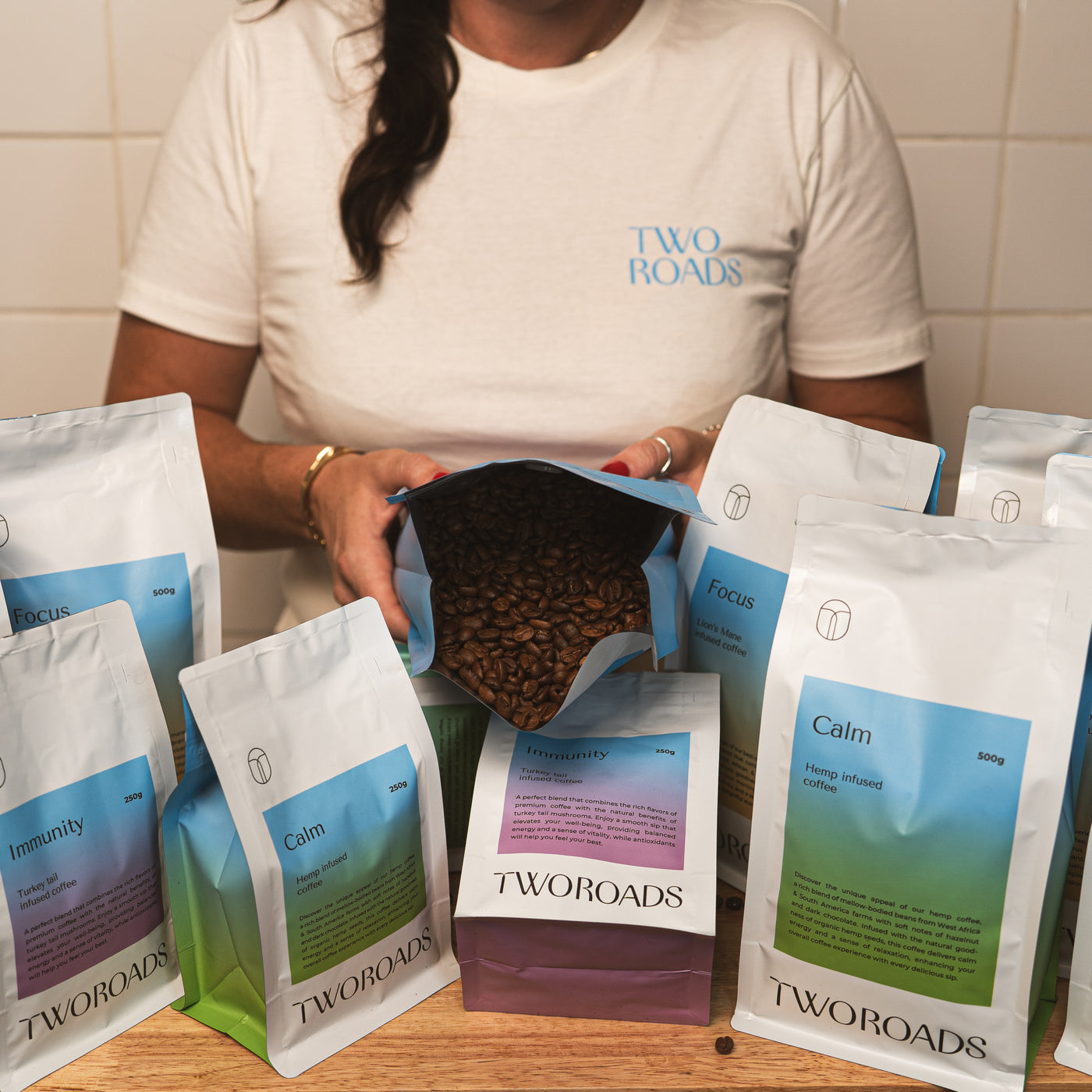Mix and Match
FAQs
Get all your questions answered
STILL HAVE SOME QUESTION? CONTACT US
No, our products are a coffee bean infused with nootropics and adaptogens, so you can use it as you would any coffee bean. Put it in your espresso machine, grind it up and use it in a french press, or make a cold brew out of it. The choice is yours.
Order whole beans if you have a coffee grinder at home. For those that don't, filter grind is best for plungers and pour-over style coffee and espresso grind is best for espresso machines and the moka pot.
It's generally recommended that pregnant individuals consult with their healthcare provider before taking any new supplements, including lion's mane, turkey tail & hemp.
Yes, because it is coffee. If you do not like the taste, we have a 30 day money back guarantee.
Yes, we use 100% arabica coffee beans sourced from West Africa and South America.
Yes, in select independent grocers across Sydney. Get in touch with us if you would like to know where.
I differs from individual to individual based on consistency of dosage, health prior to taking Two Roads and other factors. However, most will start feeling the positive effects after 1 month. If for some reason, you are not feeling any different, we will happily refund you with our money-back guarantee.
